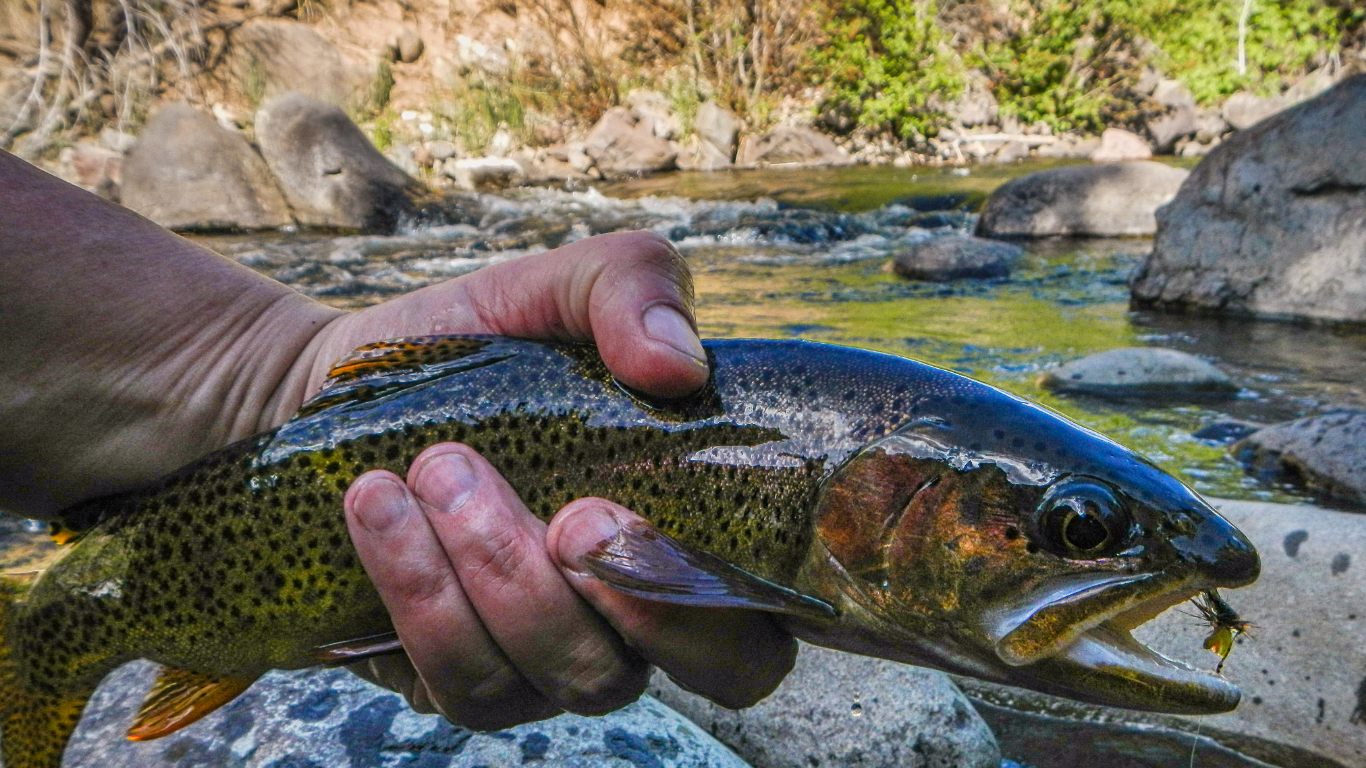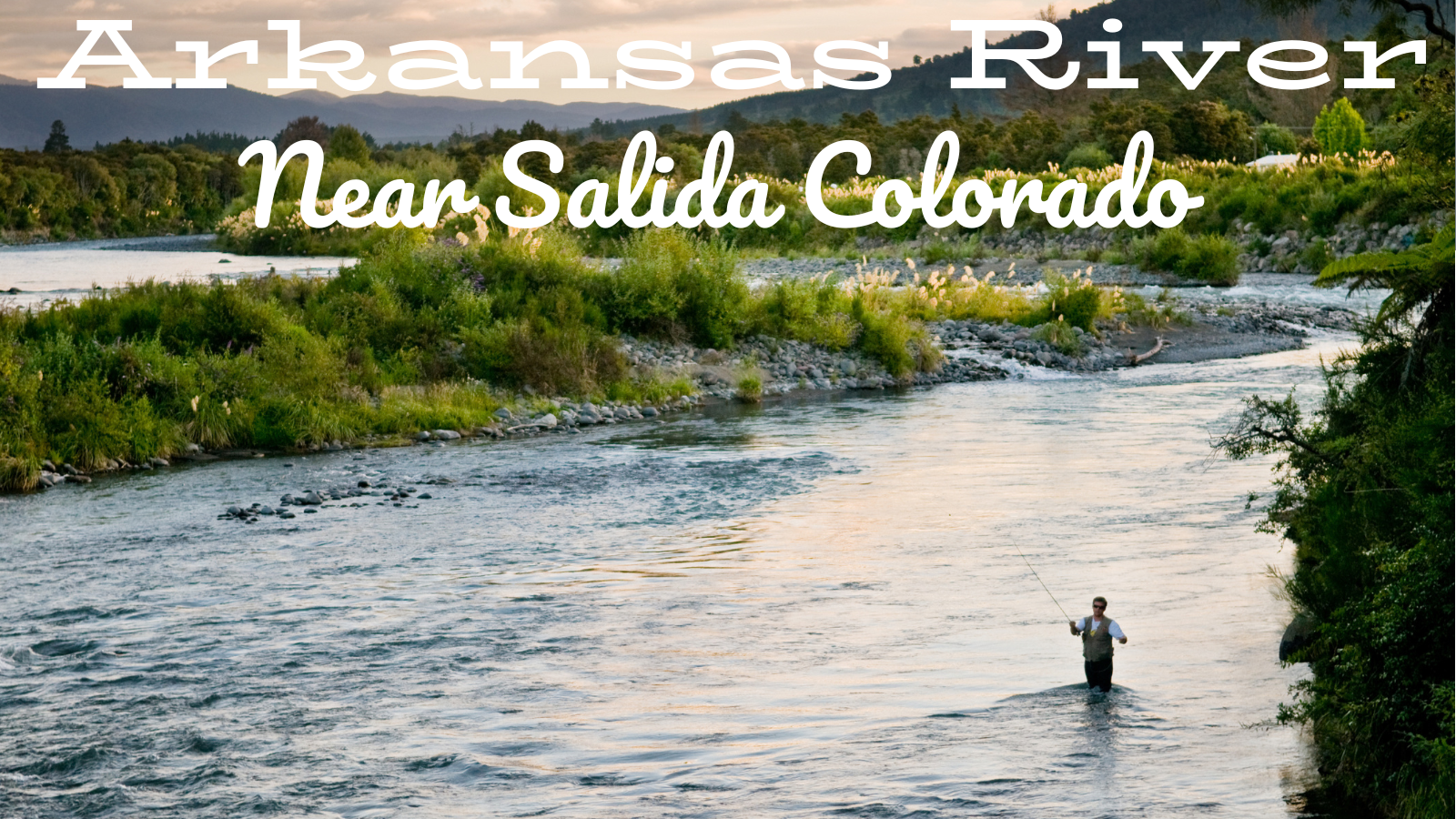Colorado’s rivers are world-class. The fish are wild, the scenery’s unreal, and the pressure’s real. Every fly shop will sell you a “starter kit,” but ask any local—there’s gear they don’t tell you about, techniques they assume you know, and lessons you’ll only learn the hard way.
I’ve been there. If I could go back, this is what I’d pack, and what I’d skip. This isn’t a sales pitch—it’s a cheat sheet for actually enjoying Colorado fly fishing without wasting money or time.
Listen to the Podcast!
1. Yes, You Need a Rod. But You Need This Rod.

Forget the standard advice about a “5-weight 9-footer.” Sure, it works. But if you plan to fish smaller creeks, tailwaters, and alpine lakes—which you will in Colorado—you’ll want more nuance.
Here’s the local breakdown:
- Fish big water like the Arkansas or Colorado? Stick with a 9-foot 5-weight.
- Want to explore pocket water, Bear Creek, or Boulder Creek? An 8-foot 3-weight will change your life.
- Doing high alpine lakes? Bring a 6-weight with backbone—wind is brutal up there.
No rod does it all well here. If you’re buying one rod, get the 5-weight. But if you plan to explore beyond Deckers and the Dream Stream, you’ll outgrow it fast.
Pro tip? Demo rods from a local fly shop before buying. Every rod casts differently at altitude and with wind.
2. Your Reel’s Drag Probably Won’t Matter—Until It Does.

Most trout in Colorado won’t take you to your backing. But tailwater fish? They will. Big river browns? They will.
I used a budget reel my first two years. It worked—until it didn’t. The day a Cheesman Canyon rainbow ran 50 feet downstream and my cheap drag stuttered… was the day I upgraded.
Don’t blow your budget on a $700 reel. But don’t buy a plastic click-pawl either. Get a reel with a sealed drag, smooth startup, and balance for your rod.
What I actually recommend:
- Redington Behemoth (budget, bomber drag)
- Galvan Torque (lightweight, made in Colorado)
- Lamson Liquid (great value, simple maintenance)
Skip saltwater reels. You don’t need them.
3. Fly Line: More Important Than the Rod Nobody Warns You About.

This is where beginners—and honestly, too many intermediates—miss. The wrong fly line ruins casts in Colorado’s altitude and wind.
Here’s the secret: get a line one half-weight heavy. A Rio Gold, SA MPX, or similar. It’ll load your rod faster and punch into wind better.
And if you’re fishing stillwaters? You’ll need an intermediate or sink-tip line. Bring one or you’re watching everyone else catch fish.
4. Leader & Tippet: Buy Better, Not More.

Standard advice says “grab a few 4x and 5x leaders.” Fine. But Colorado’s pressured trout are leader snobs. I learned the hard way.
Spend up for fluorocarbon tippet in 5x–6x. Rio, Trouthunter, Seaguar—whatever you trust. Cheaper mono gets shredded faster on rocks and teeth.
And here’s the trick: add 2-3 feet of tippet to EVERY leader out of the package. They sell you too short. You want 11-12 feet, especially on clear tailwaters like Fryingpan or Deckers.
5. You Don’t Need 100 Flies. You Need These 12.

Don't listen to all the fly shops. I'm sorry, but as a person that's wasted time and money on the sales pitch. Take it from me. Everyone says “match the hatch.” Cool. But if you’re standing at the river not knowing what’s hatching? You’ll wish you had these confidence patterns.
If I had to start over:
- RS2 (black & grey, #20-22)
- Barr’s Emerger (#18-20)
- JuJu Baetis (#18-20)
- Pheasant Tail (#16-18)
- Rainbow Warrior (#18)
- Elk Hair Caddis (#14-16)
- Parachute Adams (#16-20)
- BWO dry (#18-20)
- Chubby Chernobyl (#10-12)
- Pats Rubberlegs (#10-12)
- Woolly Bugger (#6-10)
- Thin Mint (#8-10)
Stop overthinking it. Start here. Add as you go.
6. Waders & Boots: Don’t Skimp Here (Especially the Boots).
Sure, breathable stockingfoot waders are standard. But wading boots make or break your day.
Colorado rivers are rocky, slick, and have weird transitions from sand to boulders. Cheap felt falls apart. Cheap rubber doesn’t grip.
You’ll want:
- Vibram sole boots + aluminum bars for grip.
- Felt soles with studs if legal (banned in some waters).
Brands I’d trust: Simms, Korkers (swap soles), Patagonia. Skip budget boots if you hike in—your ankles will hate you.
And yes—always carry a wader patch kit. Colorado will find the leak.
7. The Gear Nobody Mentions But Everyone Uses.
This is the stuff you’ll realize you forgot around trip #3:
- Net with rubber bag (wooden ones look cool but rubber nets save fish and tangle less).
- Polarized sunglasses (amber or copper lens) for spotting fish.
- Wading belt (not optional—safety first).
- Floatant AND desiccant powder.
- Hemostats + nippers + zinger (you’ll thank me).
- Fly box with foam slots, not loose compartments.
- Tiny headlamp (you will fish past sunset).
8. Packs, Vests, or Slings: Pick One.
You don’t need every storage system. You just need a way to carry flies, tippet, tools, snacks, and water.
Here’s how to decide:
- Sling pack if you wade deep.
- Hip pack if you hike and stay mobile.
- Vest if you love old-school pockets everywhere.
I started with a vest. I switched to a sling. I’ve never looked back.
Final Thoughts: Buy Smart, Fish Hard, Upgrade Slowly.
You don’t need $3,000 of gear to fly fish Colorado. You need gear that fits YOU, your water, and your fishing style.
Buy quality where it counts (waders, boots, rod). Save where you can (reel, starter flies). And skip anything that adds weight without adding fish.
Most of all? Go fish. Colorado will teach you what matters. The gear is just a tool—the river’s the real teacher.
.png?width=300&height=100&name=Copy%20of%20Rise%20Beyond%20Logo%2012.31.24%20(300%20x%20100%20px).png)
.png)


